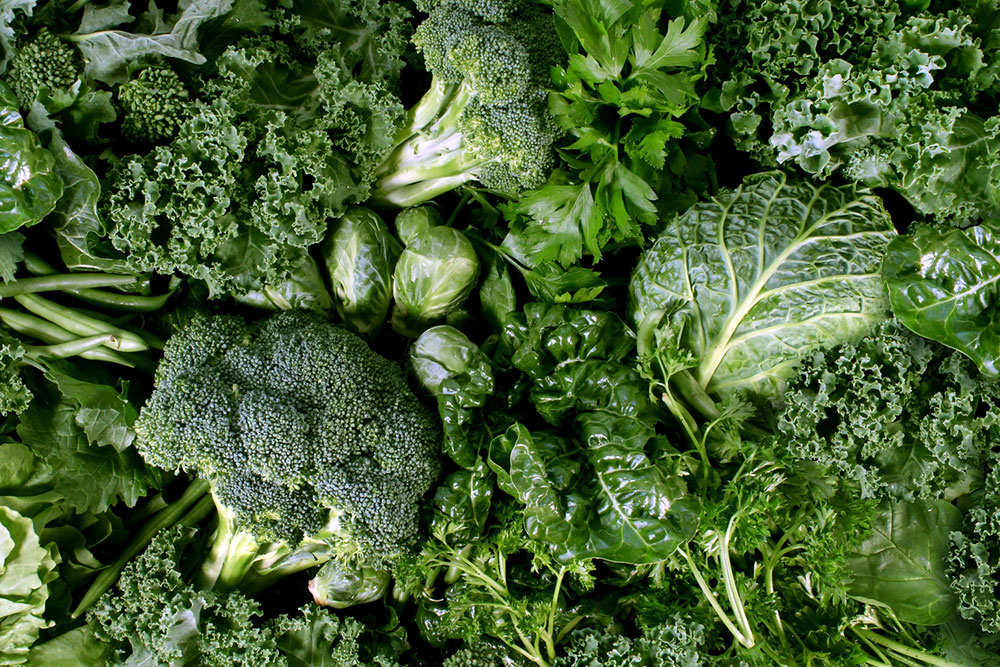
Bone health – Foods to eat and avoid
Maintaining strong and healthy bones is crucial for a vibrant and active life. Our bones provide the structural framework that supports our body and protects vital organs. Eating a meal plan rich in specific nutrients is imperative to improving bone density. This article explores the best foods for bone density and suggests a meal plan. It also sheds light on the foods to avoid to safeguard one’s skeletal health.
Foods to eat to improve bone density
Here are a few foods one should eat to improve bone density:
- Leafy greens for calcium absorption
Leafy greens like kale, spinach, and collard greens are powerhouse options and are considered some of the best foods for bone health. They are abundant in calcium, a mineral vital for strong bones. Moreover, they contain vitamin K, which aids in calcium absorption. - Fatty fish for vitamin D and omega-3 fatty acids
Fatty fish such as salmon, mackerel, and sardines are rich sources of vitamin D, which is essential for calcium absorption. Additionally, they provide omega-3 fatty acids that have anti-inflammatory properties, benefiting overall bone health. - Nuts and seeds for essential minerals
Almonds, chia seeds, and flaxseeds are packed with crucial nutrients like magnesium, phosphorus, and calcium, all of which contribute to optimal bone health. Incorporating a handful of these into your daily diet can make a significant difference. - Dairy alternatives like tofu for calcium intake
For individuals who are lactose intolerant or follow a vegan meal plan, fortified dairy alternatives like almond milk, soy milk, and tofu can be excellent sources of calcium. Be sure to choose options that are fortified with essential nutrients. - Lean protein like chicken for bone regeneration
Foods rich in lean protein, such as chicken, eggs, lean beef, and legumes, are essential for bone regeneration. They provide the building blocks necessary for the formation of new bone tissue. - Colorful vegetables like bell peppers for bone health
Vibrantly colored vegetables like bell peppers, carrots, and sweet potatoes are rich in antioxidants. These compounds help protect bone cells from damage and support overall bone health.
Foods to avoid
When aiming to enhance bone density, it’s imperative to be mindful of certain foods that can hinder this process. These include the following:
- Excessively salty foods
High sodium intake can lead to calcium loss through urine. Therefore, limiting the consumption of excessively salty foods like processed snacks and canned soups is advisable. - Sugary beverages
Sugary drinks can disrupt calcium absorption and contribute to bone loss over time. Opting for water, herbal teas, or calcium-fortified alternatives is recommended. - Caffeine
While enjoying a cup of coffee or tea is a common ritual, excessive caffeine intake can interfere with calcium absorption. It’s best to consume caffeine in moderation to support optimal bone health.
Additional tips for strong bones
Here are a few tips for strong bones:
- Ensure micronutrient intake
Alongside calcium and vitamin D, ensuring an adequate intake of other essential minerals like magnesium, phosphorus, and zinc is crucial. These minerals play pivotal roles in bone formation and maintenance. - Incorporate anti-inflammatory foods
Including foods rich in antioxidants and anti-inflammatory properties can support overall bone health. Berries, turmeric, and green tea are excellent additions to a bone-boosting meal plan. - Stay hydrated
Proper hydration is often overlooked in bone health discussions. Water helps transport nutrients to cells, including those in bones. Aim for at least eight glasses of water a day. - Eat mindfully
Thoroughly chewing food aids in the digestion and absorption of nutrients. Take time to savor each bite, allowing the body to maximize the bone-strengthening nutrients. - Cook with bone-strengthening herbs
Herbs like nettle, horsetail, and red clover have been traditionally used to support bone health. Having them as teas or supplements under the guidance of a healthcare professional is recommended. - Be consistent
Remember that the journey to stronger bones is a long-term commitment. Consistency in one’s food habits, along with a well-structured meal plan, will yield the best results. Individuals should monitor their progress and adjust as needed while consulting a healthcare provider for personalized advice. - Do weight-bearing exercises
One should incorporate weight-bearing exercises such as brisk walking, dancing, and weightlifting into their routine. These activities stimulate bone growth and help maintain bone density, contributing to overall skeletal health.
In conclusion, prioritizing bone health through a nutrient-rich meal plan and essential lifestyle adjustments is a fundamental aspect of overall well-being. One can take proactive steps toward maintaining strong and healthy bones by incorporating various bone-boosting foods and being mindful of those to avoid.
- Previous Post
- Next Post